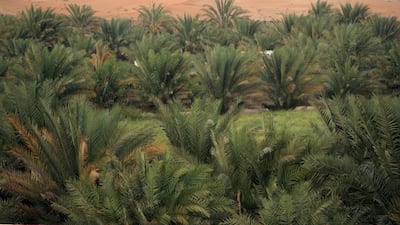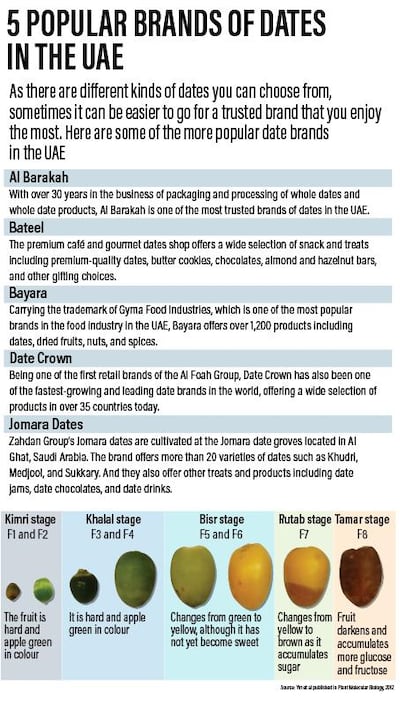As Ramadan preparations get under way in the UAE, online sales of dates soared, according to local manufacturers.
Traditionally, Muslims break their daily fast with the sweet fruit and a glass of water.
But the pandemic has had an effect on the way people are celebrating iftars this year, said Yousuf Saleem, managing director of Al Barakah Dates, speaking on Dubai Eye's Business Breakfast programme.
"Ramadan is the pinnacle of the entire season. Most buyers, wholesalers and consumers around the world buy and look forward to consuming dates in the month of Ramadan.
"This year, we've seen online sales have skyrocketed in the last few weeks, even in our own online store which we launched a couple of months ago, just as a trial," he said.
The number of online sales was unexpected, said Mr Saleem, who manages what is now the world's largest privately owned date factory.
"It was a pet project – a couple of months ago we launched it with the whole boom of e-commerce post-Covid. We said let's give it a try, why not?
"It started off slow but in the last couple of weeks, we have seen tremendous things, because of the pricing.
"You get factory pricing – look at it like a factory outlet for fresh products."
His theory for the website's success was that families are choosing to break their fast privately and buying provisions personally.
"At-home iftars are the thing this year, compared to previously when people would go out for iftar buffets or to friends' houses," he said.
The UAE has introduced strict regulations around the holy month this year. While residents can still attend mosques for prayers, Ramadan tents are banned, as is the distribution of fresh or cooked food from mosques, restaurants or residences.
Iftars can still be celebrated in restaurants, but only seven diners are allowed to sit at each table in Dubai, and only four in Abu Dhabi.

A booming date market
Trends in the types of dates purchased are changing as well, said Mr Saleem, who processes and packages huge quantities of local and imported dates for export.
"The common consumer base is now more educated and more picky in what type of dates they wish to purchase," he said.
"They know which varieties grow in the UAE or in Saudi Arabia.
"I don't believe it's going to stop here once Ramadan is over – it's going to continue because the consumption of dates has generally increased in the last couple of years.
"Now with people consuming them more within their houses and personally getting involved in the purchase of dates, this is expected to continue through the year."
The management of Al Barakah Dates recently announced it was planning to double the capacity of its manufacturing unit in Dubai Industrial City.
The facility will be capable of processing more than 100,000 tonnes of dates and date products annually – the equivalent to almost half of the UAE’s entire domestic harvest, although many of the dates they handle come from abroad.
Vendors in the date market in Mina Zayed in Abu Dhabi have also seen a bumper few days in the run-up to Ramadan.
Shop worker Mohammed Al Hali from Al Bhahja Fruits and Vegetables told The National he had sold 600 boxes of dates this week and expects to sell about 2,000 by the end of Ramadan. Normally he sells only 150 boxes a month.
Dates in his market shop cost Dh10 ($2.70) a kilogram.
















